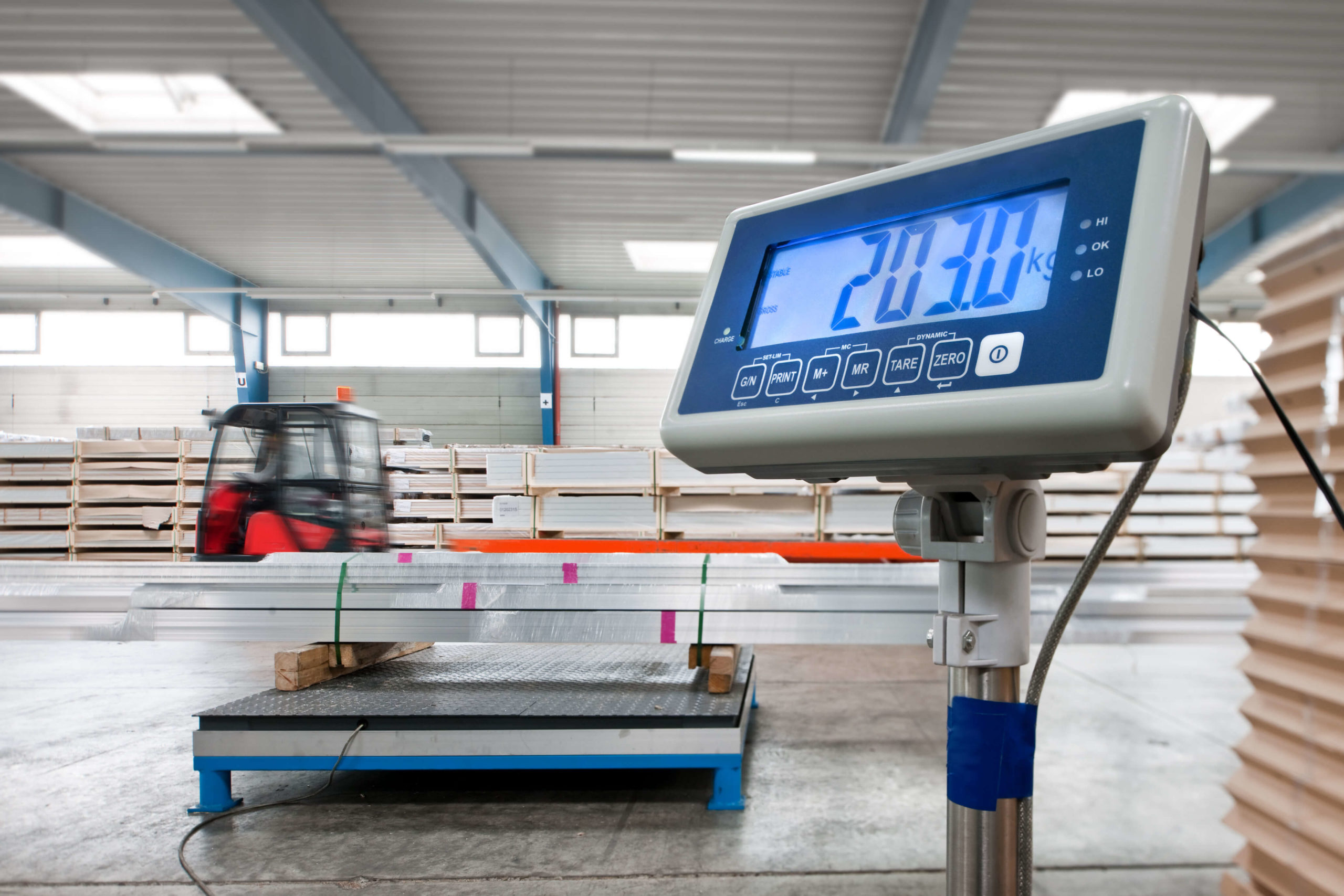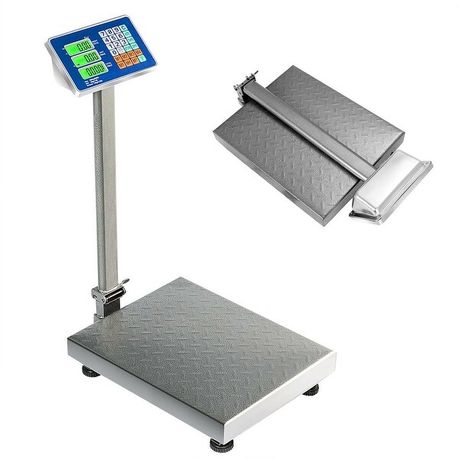Just How Commercial Scales Work: A Comprehensive Review for New Users
Comprehending the technicians behind industrial ranges is crucial for new customers that want to ensure accuracy in their measurements. As we check out these elements, one should consider how these elements interact to boost efficiency in diverse commercial applications.
Basics of Industrial Scales
Industrial scales are vital tools used throughout various markets, consisting of manufacturing, logistics, and agriculture, to ensure exact weight measurements of hefty tons. The essential principle behind commercial ranges involves the conversion of weight right into a quantifiable kind that can be displayed electronically or analogically. These ranges use different mechanisms, such as lots cells or mechanical levers, to identify the weight of items positioned upon them.

In enhancement to their measurement capabilities, industrial scales are developed to withstand harsh atmospheres, including durable building that resists dirt, wetness, and hefty effects. Calibration and maintenance are important to make certain accuracy, as even minor disparities can result in considerable economic ramifications. By understanding the essentials of commercial scales, customers can value their significance in numerous commercial applications.
Kinds Of Industrial Scales
Different kinds of industrial scales satisfy the varied demands of various industries, each created to manage particular weighing tasks with precision and reliability. Among one of the most usual types are floor ranges, which are excellent for considering hefty and large products. These scales normally feature big systems and can suit palletized products, making them important in warehouses and delivery facilities.
Another kind is bench ranges, which are commonly made use of for smaller sized products in production and retail settings. They supply accurate dimensions for items that need precision, such as chemicals or parts in production line (Industrial Scales). For mobile procedures, portable scales offer flexibility and ease of transport, ideal for fieldwork or momentary setups
In addition, specialized ranges like checkweighers are made use of in production lines to preserve quality control by guaranteeing that items fulfill weight specifications. Each kind of industrial range plays an important function in boosting operational effectiveness and accuracy across different industries.
How Considering Devices Work
Weighing devices are important components that allow accurate dimension of mass throughout various commercial ranges. These devices make use of various principles of physics and engineering to supply accurate weight analyses, essential for inventory monitoring, top quality control, and conformity with regulatory standards.
One typical sort of evaluating mechanism is the lots cell, which runs on the principle of strain assesses. When a lots is applied, the tons cell flaws somewhat, producing an electric signal proportional to the weight. This signal is then converted right into an understandable weight measurement by the scale's electronic devices.
Another extensively made use of mechanism is the mechanical equilibrium, which employs a system of bars and weights. Industrial Scales. This approach depends on the principle of stability, where the weight of the things being measured is stabilized against understood weights, permitting for straight dimension
Furthermore, pneumatic and hydraulic scales leverage liquid characteristics concepts to gauge weight. These systems use the stress exerted by a load to identify weight, providing high accuracy for large lots.
Proper Use Techniques
When making use of industrial scales, sticking to correct use techniques is essential for ensuring exact dimensions and maintaining tools integrity. Most importantly, it is necessary to choose the ideal range for your certain application, as scales vary in ability and accuracy.
Before weighing, make certain that the range is put on a stable, level surface area complimentary from resonances or disturbances. This will certainly help to decrease errors caused by outside elements. Additionally, adjust the scale according to the maker's specifications before utilize, making sure that it is working correctly.
When placing products on the scale, disperse the weight equally to stay clear of tipping or harming the devices. Constantly permit the scale to stabilize before videotaping the weight, as variations might occur during initial placement. For bulk products, make use of containers that are suitable for the scale size to stop overloading.
Additionally, avoid placing extremely warm or cool products directly on the range, as temperature variants can affect accuracy. Maintain the considering platform totally free and clean of anchor particles to stop contamination and guarantee trustworthy results. By following these strategies, individuals can maximize the efficiency and long life of their industrial scales.
Maintenance and Calibration Tips
Making certain the longevity and precision of commercial scales needs thorough maintenance and normal calibration. A preventive maintenance routine is crucial; it must include regular examinations to recognize wear and tear, specifically on load cells and other sensitive elements. Frequently cleaning up the range's surface area and making sure the surrounding location is without debris will certainly help keep its honesty and performance.
Calibration is similarly essential and must be executed at regular periods or whenever the scale experiences significant modifications in temperature, humidity, or physical variation. Make use of licensed calibration weights that are traceable to national requirements for accuracy. Paper each calibration session meticulously to track efficiency over time and recognize any type of fads or repeating concerns.
Additionally, bear in mind the scale's setting. Prevent positioning see here now it near resources of vibration, electromagnetic disturbance, or severe temperatures, as these variables can negatively impact dimensions. Train all drivers on appropriate scale use and upkeep procedures to make certain regular performance and precision. By sticking to these upkeep and calibration pointers, users can enhance the reliability of their industrial ranges, guaranteeing optimum procedure in any type of setup.
Verdict

Recognizing the use this link auto mechanics behind industrial ranges is critical for new users who desire to ensure accuracy in their dimensions.Industrial ranges are important devices utilized throughout different fields, including manufacturing, logistics, and agriculture, to ensure accurate weight dimensions of hefty tons. The essential concept behind industrial ranges includes the conversion of weight into a quantifiable type that can be displayed digitally or analogically. By recognizing the basics of commercial ranges, individuals can appreciate their value in various commercial applications.
In verdict, comprehending the operation and maintenance of commercial scales is important for making certain precise weight measurements in various applications. (Industrial Scales)